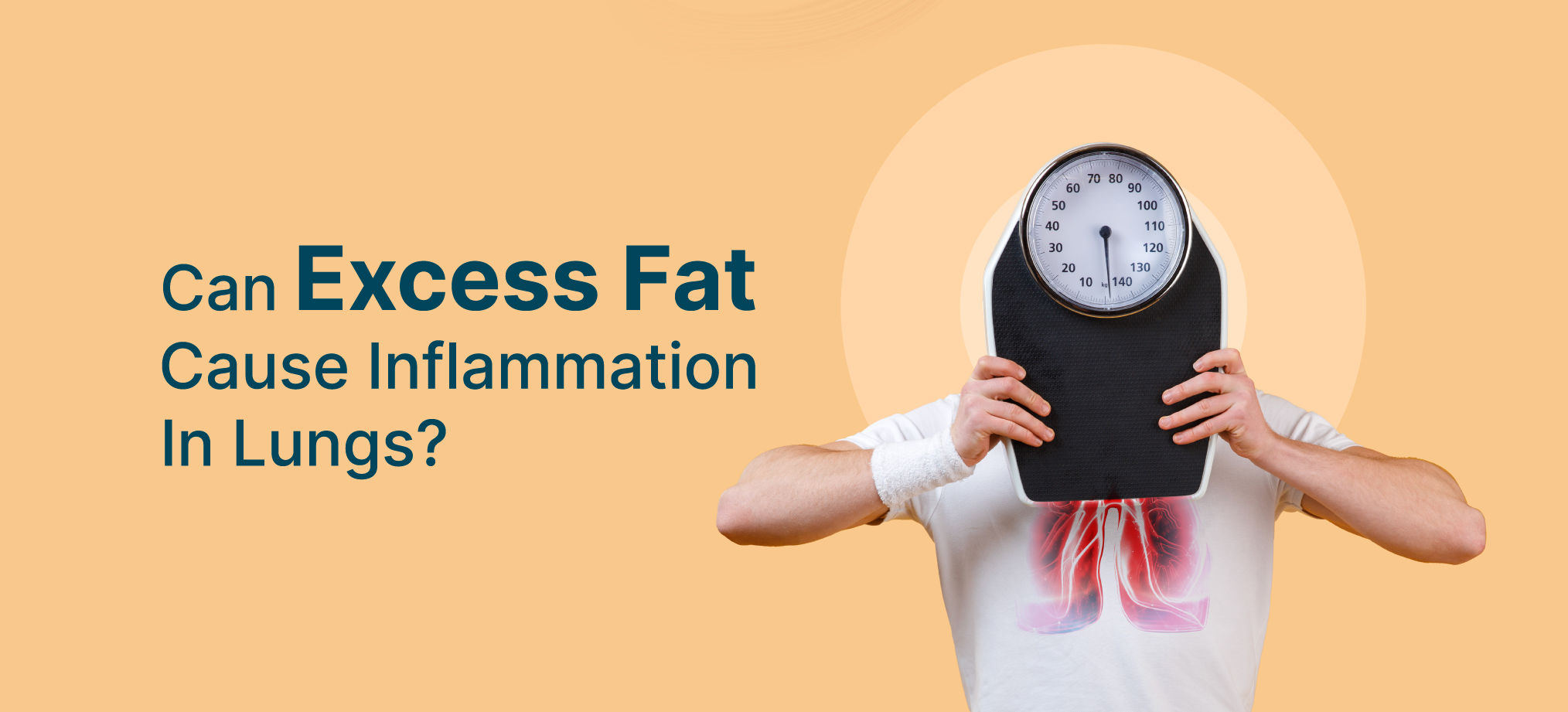Respiratory Health
Obesity and Lung Function: Know How Your Weight Can Affect Your Respiratory Health
3 min read
By Apollo 24|7, Published on - 09 November 2022, Updated on - 25 August 2023
Share this article
0
2 likes

In India, the prevalence of obesity has been increasing at an alarming rate in recent years, according to a World Health Organization (WHO) study. The number of obese adults in India has increased from 5% in 1975 to 15% in 2016. Research also shows that inactive lifestyles and dietary habits are the major reasons for this increase in India.
Obesity not only leads to several health problems but also affects lung function. The lungs are responsible for providing oxygen to the body and removing carbon dioxide from it. Obesity can make it difficult for the lungs to function properly as it puts extra pressure on the respiratory system. Let us know more about the effect of obesity on the lungs.
What are the different ways in which obesity affects lung function?
Some of the most common effects of obesity on lung function include:
1. Obstructive sleep apnoea
Obstructive sleep apnoea (OSA) is a condition where a person stops breathing for short periods during sleep. This can happen when excess fat tissue blocks the airway. Furthermore, people with OSA are at a higher risk of developing lung problems such as bronchitis, pneumonia, and asthma.
2. Forced vital capacity:
Another way in which obesity affects lung function is by reducing the amount of air that one can inhale, which is medically called forced vital capacity. The body's extra weight puts pressure on the chest, making it difficult for the lungs to expand fully. It can lead to shortness of breath and difficulty breathing.
3. Susceptible to infections:
Obesity can also make a person more susceptible to respiratory infections. Excess fat tissues can increase the production of cytokines and fighter immune cells, which can trigger inflammation in the lungs.
How can obese people deal with respiratory problems?
The best way to treat obesity-related lung problems is by losing weight, which can be done through diet and exercise. However, it is essential to consult a doctor before starting any weight loss program.
- In people with OSA, treatments such as continuous positive airway pressure (CPAP) or mandibular advancement devices (MADs) can be useful to keep the airway open during sleep. These devices can help improve sleep quality and reduce the risk of developing lung problems.
- For people with reduced forced vital capacity, pulmonary rehabilitation including exercises, education, and support can be used to help people with lung conditions breathe better.
- Exercising regularly can also help to improve lung function and increase airway calibre. In addition, exercise can help to reduce body fat, which will also improve overall respiratory function.
Obesity can have a significant impact on lung function. While weight loss, exercise and lifestyle changes can help improve symptoms and quality of life, one can consult a doctor to get the best course of treatment.
Consult An Apollo Lung Specialist
Medically reviewed by Dr Sonia Bhatt.
Respiratory Health
Leave Comment
Recommended for you

Respiratory Health
Can You Keep a Pet If You Have COPD?
Though smoking and pollution remain the primary contributors to most pulmonary diseases, having a pet at home may also have an impact on these illnesses.

Respiratory Health
How to Keep Your Lungs Healthy During Diwali
Bursting of firecrackers during Diwali leave behind toxic particles that are dangerous for everyone, especially those people living with pre-existing respiratory conditions such as asthma, chronic obstructive pulmonary disease (COPD) and bronchitis.

Respiratory Health
Is Your Blood Oxygen Saturation Level Safe?
In people with chronic lung conditions such as asthma, COPD, and more recently COVID-19, the blood oxygen levels may drop below the desired levels requiring prompt medical attention.
Subscribe
Sign up for our free Health Library Daily Newsletter
Get doctor-approved health tips, news, and more.
Visual Stories

Can Asthma Symptoms Get Worse Indoors?
Tap to continue exploring
Recommended for you

Respiratory Health
Can You Keep a Pet If You Have COPD?
Though smoking and pollution remain the primary contributors to most pulmonary diseases, having a pet at home may also have an impact on these illnesses.

Respiratory Health
How to Keep Your Lungs Healthy During Diwali
Bursting of firecrackers during Diwali leave behind toxic particles that are dangerous for everyone, especially those people living with pre-existing respiratory conditions such as asthma, chronic obstructive pulmonary disease (COPD) and bronchitis.

Respiratory Health
Is Your Blood Oxygen Saturation Level Safe?
In people with chronic lung conditions such as asthma, COPD, and more recently COVID-19, the blood oxygen levels may drop below the desired levels requiring prompt medical attention.